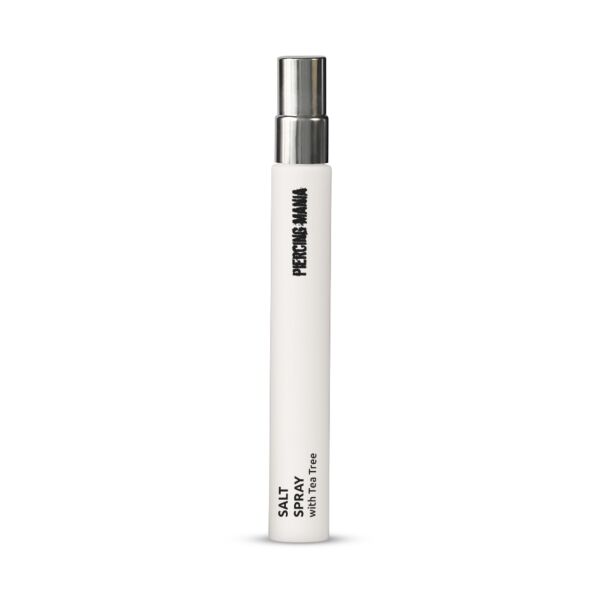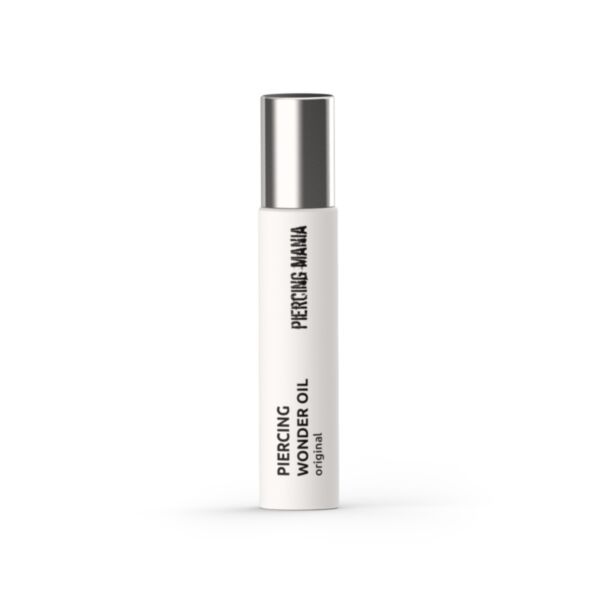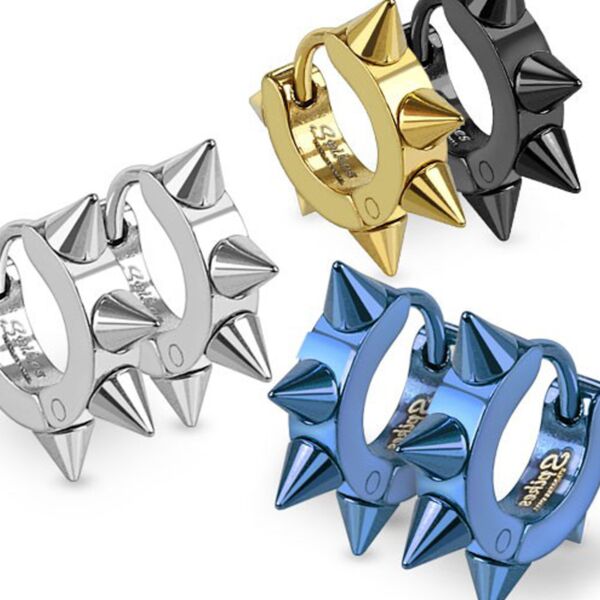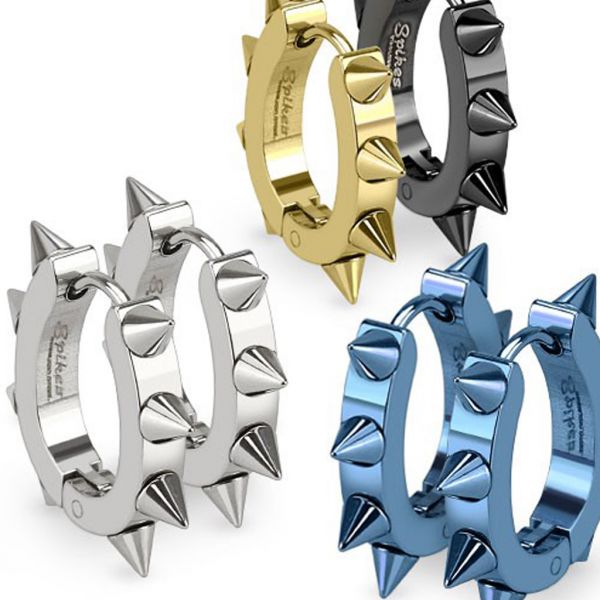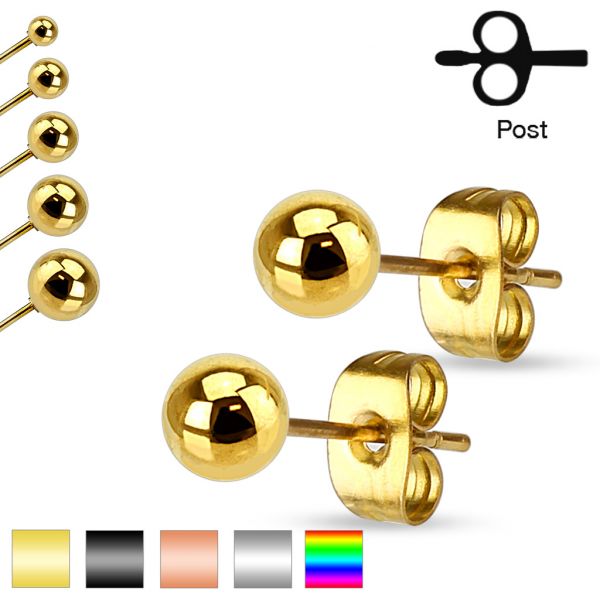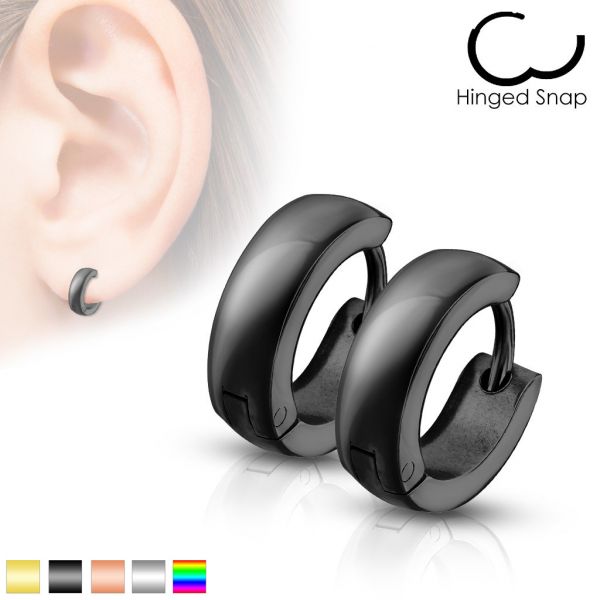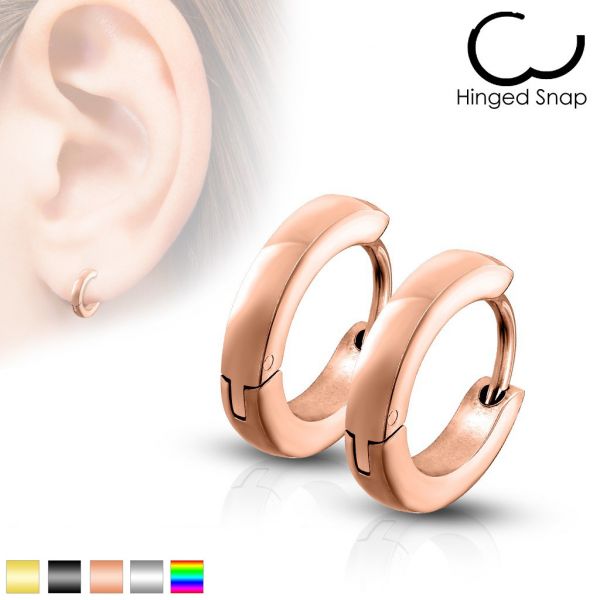Earrings
Earrings Shopping Guide
Earrings and piercings go perfectly together. However, there is a big difference between the two when it comes to the thickness of the bar.
We make a clear difference between earrings and ear piercings. Earrings are usually done with a gun in the earlobe without cartilage.
Ear piercings, on the other hand, are done with a needle and are located in the cartilage.
In this Shopping Guide, we look at the various earring jewelry available and help you find the most beautiful pieces. Learn more about the different metals used for earrings and get insights into the correct sizes.
Jump to:
Earring Jewelry Sizes
Earrings come in many different designs, so when looking into the sizes we specifically look at the part that goes through your earring hole.
The thickness of earrings varies between 0.6 mm, 0.8 mm up to 1.0 mm. The most common thickness is 0.8 mm.
Most earrings are done with a piercing gun. Fully healed earring holes done with a gun are usually flexible enough to fit bars up to 1.0 mm. If you rather stay on the safe side, you may want to stick with 0.8 mm or below.


Earring or Piercing Jewelry?
When you wear jewelry in both the earlobe and the cartilage, you most likely have both earring and piercing holes. With so many different types of piercings and earrings, mixing them helps you create your unique look.
Be aware that you can't just wear any ear piercing in your earring hole, and you should not just wear any earring in your piercing hole.
Earring holes are primarily done with a piercing gun. For such holes, you wear piercings with a bar thickness up to 1.0 mm. If your earring hole is not too flexible, you better get one in 0.8 mm.
Piercing holes are done with a needle. Piercing holes in the ear requires a standard bar thickness of 1.2 mm. When you wear earring or piercing jewelry with thinner bars, you risk your hole healing back to a smaller size than before.
Earring Jewelry Materials
There is a wide selection of materials available for earring jewelry. Here you can find more information about the most common materials.
316L Surgical Steel
flip for more info
316L Surgical Steel
When you are looking for affordable earrings, the ones made of 316L Surgical Steel are often the best choice. You will find a wide range of fashion earrings made of this material. It also contains trace amounts of Nickel.
.925 Sterling Silver
flip for more info
.925 Sterling Silver
Earrings made of .925 Sterling Silver are immensely popular. The unique shine of silver is astonishing and hard to beat. Sterling Silver is known to be quite sensitive to discoloration, so keeping them dry is crucial. With a bit of care, Sterling Silver earrings will remain beautiful.
14 Kt. Gold
flip for more info
14 Kt. Gold
Suppose you have a bit more to spend, earrings of 14 Kt. gold is most likely the best choice. Luxury earring jewelry made of gold makes your ear stand out. 14 Kt. Golden earrings require a little maintenance but can last a lifetime.
Titanium
flip for more info
Titanium
Titanium earrings are hard to find but definitely something worth considering. When sensitive to Nickel or metals in general, Titanium is the best choice for your new earrings. Titanium Earrings are completely worry-free and simply the highest quality material you can buy.
Earring Aftercare
Are you suffering from sensitive earring holes? Consider using an Aftercare product to get it back to normal. Most earring infections or sensitivity is related to dirty jewelry. It is recommended to clean your jewelry before putting it in. In combination with a Piercing Aftercare product like Salt Spray with Tea Tree, your earring hole should not require much of an aftercare routine.

Get a new Earring
Are you thinking about getting a new earring done? In our 'Getting Pierced' guide we provide you with helpful information. Especially the difference between the usage of an earring gun or a piercing needle is relevant information.













